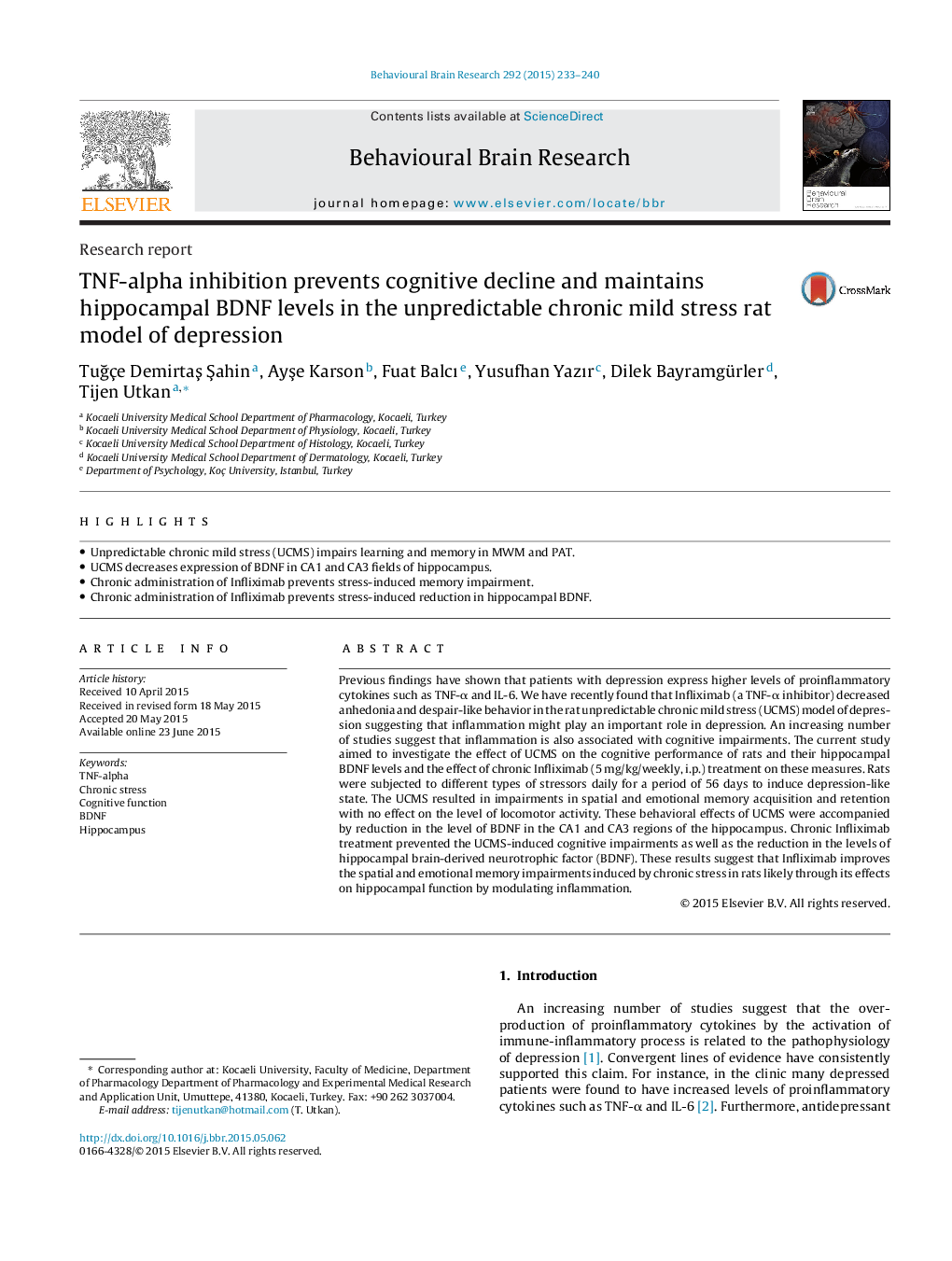| Article ID | Journal | Published Year | Pages | File Type |
|---|---|---|---|---|
| 6256503 | Behavioural Brain Research | 2015 | 8 Pages |
â¢Unpredictable chronic mild stress (UCMS) impairs learning and memory in MWM and PAT.â¢UCMS decreases expression of BDNF in CA1 and CA3 fields of hippocampus.â¢Chronic administration of Infliximab prevents stress-induced memory impairment.â¢Chronic administration of Infliximab prevents stress-induced reduction in hippocampal BDNF.
Previous findings have shown that patients with depression express higher levels of proinflammatory cytokines such as TNF-α and IL-6. We have recently found that Infliximab (a TNF-α inhibitor) decreased anhedonia and despair-like behavior in the rat unpredictable chronic mild stress (UCMS) model of depression suggesting that inflammation might play an important role in depression. An increasing number of studies suggest that inflammation is also associated with cognitive impairments. The current study aimed to investigate the effect of UCMS on the cognitive performance of rats and their hippocampal BDNF levels and the effect of chronic Infliximab (5 mg/kg/weekly, i.p.) treatment on these measures. Rats were subjected to different types of stressors daily for a period of 56 days to induce depression-like state. The UCMS resulted in impairments in spatial and emotional memory acquisition and retention with no effect on the level of locomotor activity. These behavioral effects of UCMS were accompanied by reduction in the level of BDNF in the CA1 and CA3 regions of the hippocampus. Chronic Infliximab treatment prevented the UCMS-induced cognitive impairments as well as the reduction in the levels of hippocampal brain-derived neurotrophic factor (BDNF). These results suggest that Infliximab improves the spatial and emotional memory impairments induced by chronic stress in rats likely through its effects on hippocampal function by modulating inflammation.
